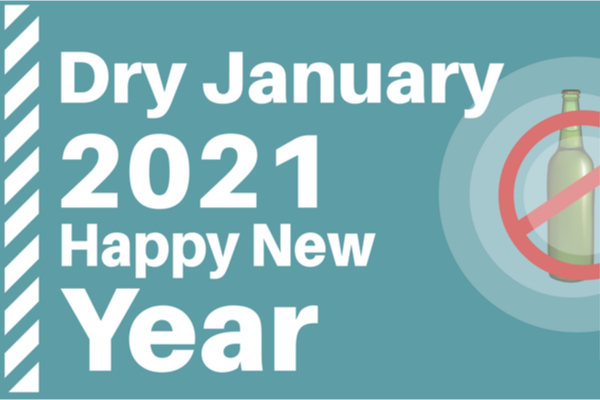Dry January, the annual no-alcohol challenge, offers a reprieve, a reset, a chance to reflect on the impact alcohol has on our lives. People vow to trade the haze of a hangover for 31 days of mental clarity. But on Wednesday night, six days into dry January, chaos erupted in Washington D.C., and Twitter exploded with an abrupt declaration: dry January was “canceled.”
No guilt, everyone said. Drink up, they encouraged, posting photos of generous pours. Many of the jokes were attempts at levity amid horror, offering a sense of comradery amid chaos. But experts in addiction say our behavior Wednesday night offers important insight into how we cope with stressful events and may make dry January even more important. For those who vowed not to drink – maybe this month, maybe long before – do not give up, experts said.
“You have had what we refer to as a lapse,” said Kim Fromme, a clinical psychology professor at the University of Texas at Austin and director of the Studies on Alcohol, Health, and Risky Activities Laboratory. “You broke your promise to yourself about dry January, you had a drink or drinks, but a single slip of drinking does not mean you have to completely blow off your goal.”
Why dry January is important
Dry January is a trend that’s become increasingly popular in recent years as a way to check-in on your relationship with alcohol. Maybe you feel you’re drinking too much or don’t always love how you act when you drink Maybe your body is signaling it needs a break. “It’s a good way to give your body a rest, you can decrease your tolerance so you no longer have to drink as much, and it’s a good way to better understand how important alcohol is to you,” Fromme said.
How can I evaluate if I have a problem?
An estimated 15 million people in the United States have alcohol use disorder, according to the National Institute on Alcohol Abuse and Alcoholism. The American Psychiatric Association has a series of questions to help determine whether someone is living with alcohol abuse disorder. But substance use is something that occurs on a spectrum, experts say. You can have problems with alcohol and not have a full-blown disorder.
“Alcohol use really occurs on a continuum, and I think your reactions to going without alcohol give you an opportunity to see where you fall on that continuum,” Fromme said. “Is not drinking an irritant? Or are you feeling like, ‘Oh my god I’m going to die if I can’t have a drink?'”
Having a problem with alcohol can mean drinking more than you want to, for longer than you want to, or wanting to cut down and not being able to. Experts say it’s important to examine your urges. How strong are they, and where do they originate?
What last night may tell you about how you cope
Experts in the field say they have never seen so many people self-medicating in their practices. American adults, particularly women, are drinking more amid the COVID-19 pandemic. Alcohol consumption has increased by 14% compared to a year ago, including 17% for women, according to a report published in September in the JAMA Network Open.
Dry January offers an opportunity to explore other ways of dialing back the stress. Whether it’s boredom or loneliness or frustration, it’s important to look at what really nourishes our feelings.
The pitfalls
Experts agree on the mental and physical benefits to temporarily abstaining from alcohol. That’s not to say dry January doesn’t come with pitfalls, Fromme said. After a long period of abstinence, there’s the risk people will immediately binge. Or that they’ll simply return to their old habits when February rolls around.
A behavioral addiction scientist, Fromme said, would suggest more sustained approaches to limiting alcohol use. So rather than picking one month out of the year to abstain, consider limiting daily or weekly consumption throughout the year. “Think about behaviors that are associated with your heavy drinking, consider when you tend to overdrink, and avoid those activities and those people,” she said.
Don’t give up on your goal
Last Tuesday was one day. A single moment. It doesn’t define you and it doesn’t mean you should give up on your goal, experts say. When a top athlete makes an error during a game, they put that error to bed and enter the next moment freshly. Whatever was driving your Dry January needs to be put first and foremost in your mind. Focus and Achieve.
—
Photo Credit: urbanbuzz / Shutterstock.com
